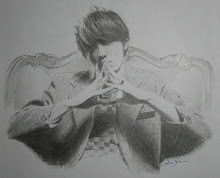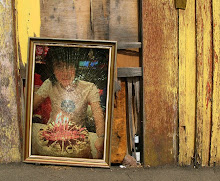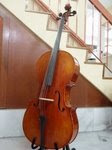Many beginning cellists have some questions and fears about playing in an orchestra. I have been playing in orchestras of various sorts and technical levels for over 40 years, and am happy to share my experiences and thoughts.
First, relax! Don't worry about making mistakes and making a fool out of yourself (especially during rehearsals. Performances are a bit more important), because we all do that from time to time. So, take it easy, and make up your mind to have fun. Why else play the cello, anyway?
Start small and keep it simple. Don't be proud. Find a community orchestra, or a small college orchestra that will be glad to have you even if you can't play like Yo-Yo Ma. Better to be a big frog in a small pond than vice-versa. Don't be too eager to join the ranks of professionals. If you play well enough to get paid for it, you will eventually find your own level and do well. What's the rush?
On the other hand, be as responsible and dependable as a professional. In other words, don't goof off all the time, and don't join an orchestra where everyone else is just fooling around. You are there to play the cello, and enjoy the beautiful music, not to act like a child. If you find yourself in an orchestra where no one takes his art seriously, then you might as well get out quick. Serious musicians are polite, and pay attention to the conductor, the concert master, and section leaders. You should not be chattering away too much during rehearsals, and not at all at performances.
Pay attention to the principal cellist, your section leader. Follow his/her bowings. Follow his/her leadership. Don't be a "Lone Ranger," but try to blend in with the rest of the cello section. You should not be playing so loudly that everyone notices you. It is especially important for orchestra cellists to learn to play pianissimo when necessary. Unless you are chosen to do so, you are not there to play solos.
Get your music a week or two before rehearsals, if possible. Practice the difficult sections, get your fingerings figured out, and be prepared.
Be on time! Be in your seat, get tuned up, rosin your bow, get comfortable, ten minutes before rehearsal is scheduled to begin. The entire orchestra needs to be ready to rehearse at the designated time, or you are wasting someone's valuable time, including your own.
Pay some attention to your personal grooming and appearance. Make sure your fingernails are clipped short enough BEFORE you come to rehearsal. Don't be a slob. You don't have to wear your white tie and tails to rehearsals, but dress to show that you respect yourself and your fellow musicians. Don't wear any perfume, aftershave, or cologne at all, ever, PERIOD! Why? Because some people are allergic to it, and because wind players (flute, oboe, brass, etc.) often find it interferes with their ability to perform. In the same vein, don't be guilty of smelling bad because you haven't bathed!
When you dress for the performance, follow your orchestra's dress code. Even professionals can get very sloppy about this. In my present orchestra, the men wear white tie and tails (tuxedo). The women wear just about anything, as long as it is black. That's OK, but sometimes they are tempted to get too casual, and I have seen women wearing black jeans, and thick cloggy shoes. It spoils the appearance of the orchestra, so don't do that. Men, polish your shoes and comb your hair!
Bring a pencil to all rehearsals. Bring one with a good eraser. You will need to write bowings and other directions in your music. Don't be afraid to write lightly on your music with a pencil. On the other hand, please erase your pencil markings when the concert is over and done. It is very irritating and confusing to get a part that has already been marked on by three previous generations of cellists, and then try to figure out which markings are correct for the present performance.
Do not bring coffee, soft drinks and food to the performance area, either during rehearsals or at the concert. Eat and drink off stage. (Not even water, unless you happen to be a wind player) If you must smoke, smoke outside. Don't make a mess. Now, if you have a sore throat, and must suck on a cough drop to keep yourself from coughing all the time, that is fine. But please don't make a lot of noise crinkling the cellophane wrappers of your cough drops.
Pay close attention to dynamics and rests. If your part is marked "p," play piano, not forte! If you have a rest, watch out that you don't play a solo! You may play many wrong notes while everyone else is playing, and no one will notice. But if you play during a "grand pause," you will receive unwanted attention.
Page turning is done by the stand partner to your right. If you are turning pages, get ready soon enough that your stand partner doesn't have to stop playing while waiting for you to flip the page! If you are on the left, you may want to memorize the few measures immediately following page turns. If the cello part is divided into two parts, the left stand partner usually plays the upper line, and the right stand partner usually plays the lower line. In more complicated divisions, the principal cellist may give detailed directions on who plays what.
If you come to a line in the music that is simply too difficult to play, then fake it. Believe me, even really fine professional musicians sometimes have to fake. You can fake by playing so softly no one can hear you, even though your bow is flying. Or you can fake by playing some of the notes, and not others. Whatever you do, don't play so badly and so loudly that it ruins the orchestra's overall performance. If you are in an amateur orchestra, sometimes you should just watch those who CAN play the part, and then come in when the music gets a bit easier. Don't sweat it, and don't be embarrassed; remember you're doing this to have fun! On the other hand, practice hard to do your best to be able to play those hard parts.





















No comments:
Post a Comment